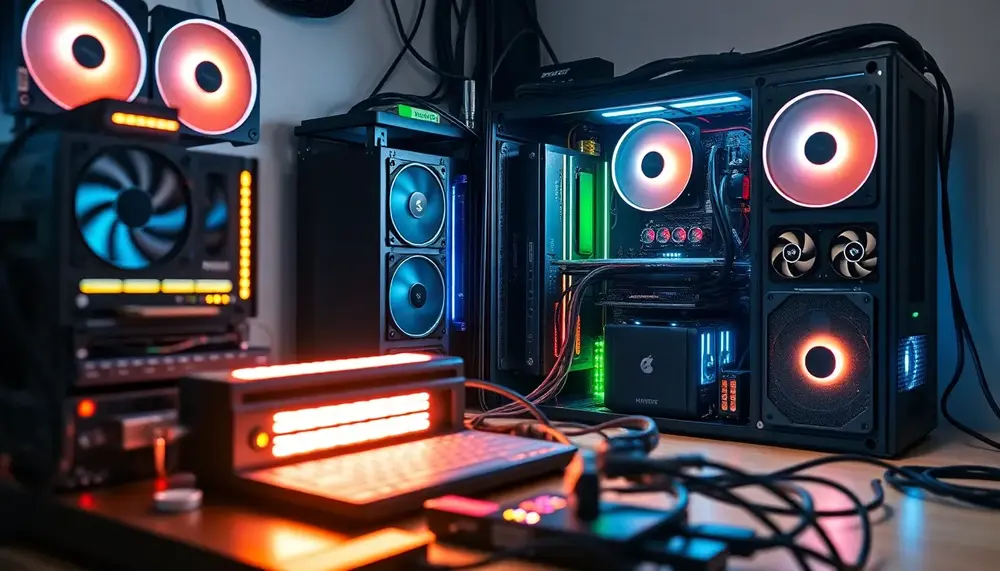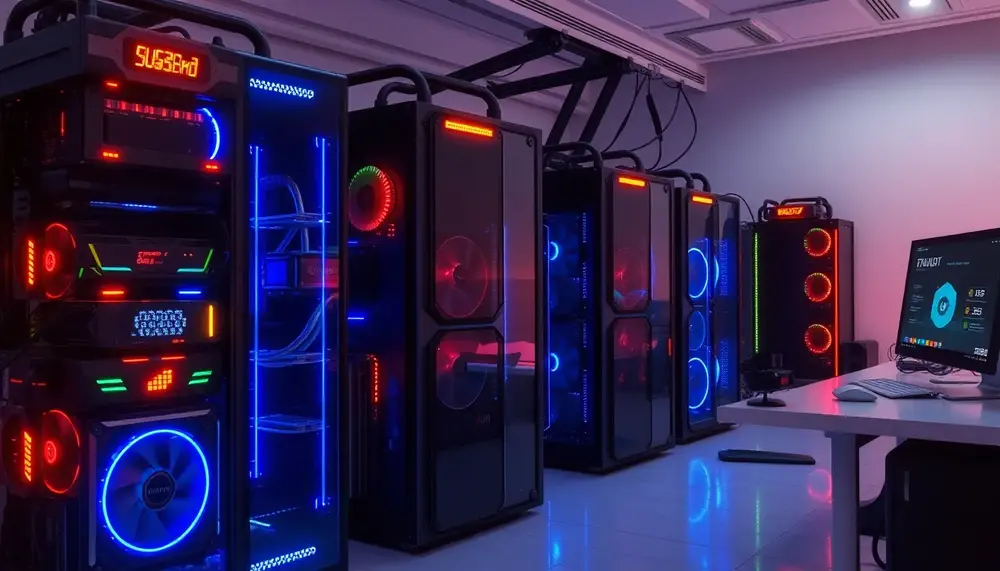Installation
Installation
Understanding "Installation" in Bitcoin Mining
In any discussion about Bitcoin Mining, the term "Installation" pops up frequently. Despite its regular use, this term can be a bit obscure for beginners. So, let's demystify it!
What does "Installation" mean?
Generally, "Installation" refers to the setup process of a software or hardware. In the context of Bitcoin Mining, it primarily implies the process through which mining software and hardware are set up and prepared for operation.
The First Step: Installing Mining Software
Installation in Bitcoin Mining often begins with setting up mining software on a user's device. Mining software, such as CGMiner or BFGMiner, interfaces with the mining hardware and carries out the actual mining tasks, such as solving complex mathematical problems or adding new blocks of transactions to the blockchain.
The Second Step: Configuring Mining Hardware
The second part of the installation process in Bitcoin Mining involves preparing the mining hardware. This hardware can be anything from a simple GPU (an acronym for Graphics Processing Unit) in a home computer, to specialized ASIC (Application-Specific Integrated Circuit) miners, built specifically for Bitcoin Mining.
Why is the Installation Important?
The proper installation of mining software and hardware is fundamental in Bitcoin Mining. Without a correct installation process, mining hardware can't function correctly, and the mining software won't maximize mining profitability. Moreover, incorrect installation can lead to hardware overheating and ultimately failure, leading to unnecessary expenses and potential loss of mined Bitcoins.
Tips for an Effective Installation
For an effective installation, ensure you follow the manufacturer guidelines for hardware setup and contemporary guidance for software installation. Using reliable sources helps to keep your system secure and promotes efficient mining activities. Furthermore, mining software should be updated regularly to keep in line with the ever-evolving Bitcoin network.
Blog Posts with the term: Installation

This guide simplifies Monero solo mining with XMRig, covering setup and optimization to mine efficiently. It explains the benefits of using XMRig, necessary hardware requirements, and how to set up a Monero wallet for secure fund management....

This guide provides a comprehensive overview of setting up an Ethereum mining rig, covering essential components like GPUs and motherboards, as well as key concepts such as Proof of Work (PoW) and hashrate. By the end, readers will understand how...

Real USDT mining apps allow users to mine Tether (USDT) directly from their smartphones or computers, offering a simplified and accessible entry point for both beginners and seasoned miners. These apps feature user-friendly interfaces, automated mining options, real-time earnings tracking,...

Mining XRP directly is not possible; instead, miners can earn XRP by mining other cryptocurrencies and exchanging them for XRP. This guide covers setting up a secure wallet, choosing the right software like Unmineable or NiceHash, and configuring your mining...

USDT (Tether) is a stablecoin pegged to the US Dollar, offering stability and liquidity in the cryptocurrency market. Unlike traditional cryptocurrencies that are mined, USDT can be earned through methods like liquidity mining, staking, and cloud mining; setting up involves...

Setting up a crypto mining server involves selecting optimal hardware like GPUs or ASICs, building infrastructure with adequate power and cooling, installing suitable software, and ensuring legal compliance for efficient operations. This process requires careful planning to optimize performance while...

Monero mining with XMRig involves using your computer's processing power to solve mathematical problems that validate transactions on the Monero network, earning you Monero coins in return. This guide covers setting up a Monero wallet, choosing a mining pool, downloading...

The article provides a comprehensive guide on how to mine Monero using Nanopool, covering the setup of a Monero wallet, creating an account on Nanopool, and configuring mining software like XMRig. It emphasizes Monero's privacy features and decentralized nature while...

This guide provides a comprehensive walkthrough for mining Veruscoin on Linux, covering system requirements, software installation, and wallet setup to ensure even beginners can start efficiently. By following the detailed steps outlined in the article, users will learn how to...

The article provides a comprehensive guide on using XMRig for Bitcoin mining, covering everything from setting up a wallet to configuring the software. It highlights XMRig's features such as cross-platform compatibility and support for both CPU and GPU mining, making...

This guide explores the essential aspects of using GPUs for Litecoin mining, covering hardware requirements, software setup, and optimization techniques to maximize efficiency. It explains how GPUs handle parallel processing tasks efficiently in the Scrypt algorithm used by Litecoin and...

Choosing the right crypto mining OS is essential for maximizing efficiency and profitability, with options like Hive OS, minerstat OS, RaveOS, and SimpleMining OS offering unique features tailored to different needs. These specialized operating systems provide tools for performance optimization,...

This guide provides a step-by-step tutorial for building a powerful PC specifically designed for Dogecoin mining, covering essential hardware components like GPUs, CPUs, motherboards, PSUs, RAM, storage solutions, and cooling systems. It also explains the basics of Dogecoin mining including...

Verus mining pools leverage the VerusHash algorithm to offer fair and efficient cryptocurrency mining, allowing even those with regular hardware a chance at rewards; choosing the right pool involves considering factors like fees, payment systems, server locations, and community support....

The article discusses the importance of choosing the right Monero mining OS to enhance efficiency and profitability, highlighting key features such as optimization for RandomX, pre-installed mining software, easy configuration, remote management, automatic updates, hardware optimization, stability and reliability. It...
